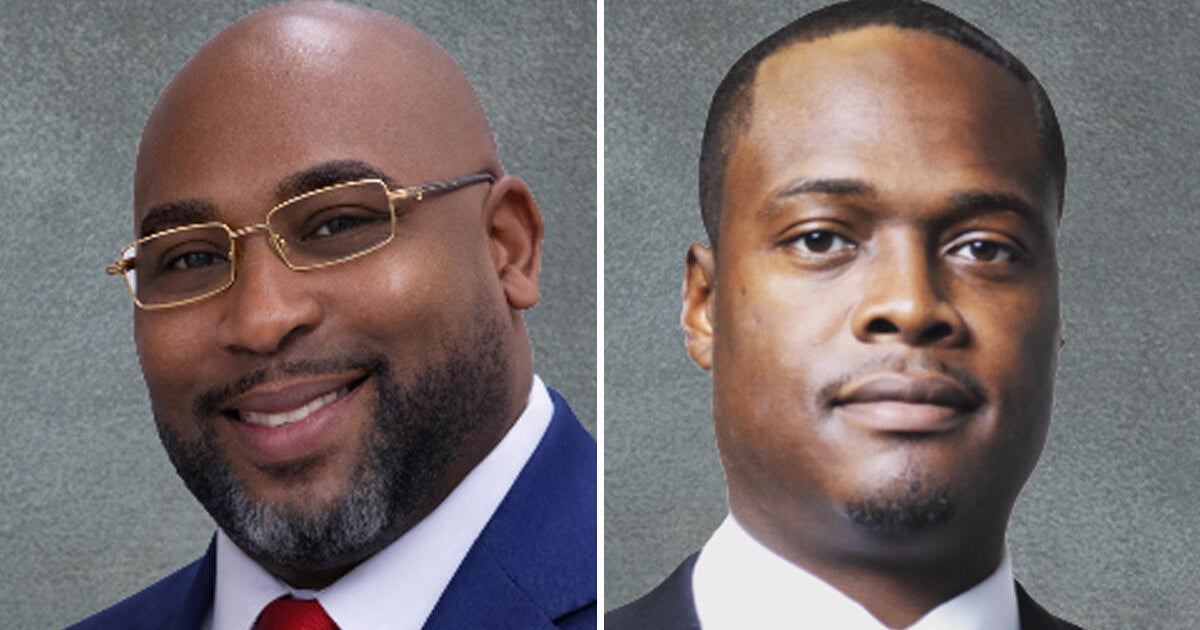Republicans raise more than Democrats as battle for Senate heats up
For the first time since 2011, the National Republican Senate Committee (NRSC) is outpacing the Democrats halfway through an off year, although the NRSC did out-raise the the Democratic Senatorial Campaign Committee in January 2017.
The NRSC has raised $34.5 million — $6.3 million more than the Democratic Senatorial Campaign Committee (DSCC), which raised $28.2 million — through June of 2019, according to Federal Election Commission filings.
However, the Democrats have been closing the gap. In June, the DSCC raised $5.5 million, while the NRSC $5.7 million. The DSCC also ended June with more cash on hand — $14.8 million to the NRSC's $12.6 million.
"Voters know how important winning back the Senate is in 2020, and the support from our grassroots is boosting resources for must-win Senate races," DSCC spokesperson Stewart Boss told CBS News.
The Democrats will need the additional fundraising given the difficult map they face in 2020. Republicans currently control the Senate by a six-seat margin, so Democrats would need to pick up three seats if President Trump loses reelection and four seats if he wins in order to flip control.
Twenty-two of the 34 seats up for grabs next year are held by Republicans, but only two of those are held in states Hillary Clinton won in 2016: Colorado and Maine. The GOP also hopes it can knock off some vulnerable Democratic senators, such as Alabama's Doug Jones.
Several Democratic candidates -- like Democratic National Committee member Jaime Harrison in South Carolina and Maine's Speaker of the House Sara Gideon -- are raking in millions of dollars for their campaigns. But of the Democrats eyeing seats held by Republicans, only former astronaut Mark Kelly is out-raising the incumbent he's looking to replace, Sen. Martha McSally of Arizona.
However, several Democratic candidates only announced their candidacies in June.
The Center for Responsive Politics has found that, across the board, Democratic supporters are giving more to specific candidates rather than committees like the DSCC and the DNC, according to the Center's outreach manager Brendan Quinn.
The large fields in some of these races is making it difficult not only for lesser-known candidates to raise money, but is also potentially creating challenges for the various party committees trying to stay competitive. For example, in the race to unseat Colorado Sen. Cory Gardner, there are at least 11 different Democratic candidates vying for Democratic donors' dollars, and two of them have raised over $1 million.
The DNC is lagging behind the RNC even more dramatically. Its filing with the FEC in July shows the committee has just $9.3 million on hand while the Republican National Committee has over $43 million.
The Republican Party is benefitting from having incumbent officials like Mr. Trump and the 22 Republican senators up for reelection. Without the burden of competitive primaries, GOP candidates can raise vast sums of money that they will only have to spend in the general election. The DSCC has not had success in winning the Senate since 2014 despite significantly out-raising the NRSC the first half of almost every year since. In 2018, the NRSC out-raised the Democrats in the first half of the year, but only by a relatively paltry sum.
In addition to underperforming in fundraising, the DSCC is also dealing with a substantial amount of debt. In their July filing with the FEC, the committee posted $16 million in debt whereas the NRSC has decreased their debt from $11 million to just under $5 million within the previous two years.
Correction: An earlier version of this story incorrectly said the DSCC and NRSC raised $5.5 million and $5.7 million last quarter, when in fact those were figures for money raised in June. It has also been updated to include cash-on-hand figures for each committee and more accurately characterize the difference in the amount of money each committee has raised so far this year.



